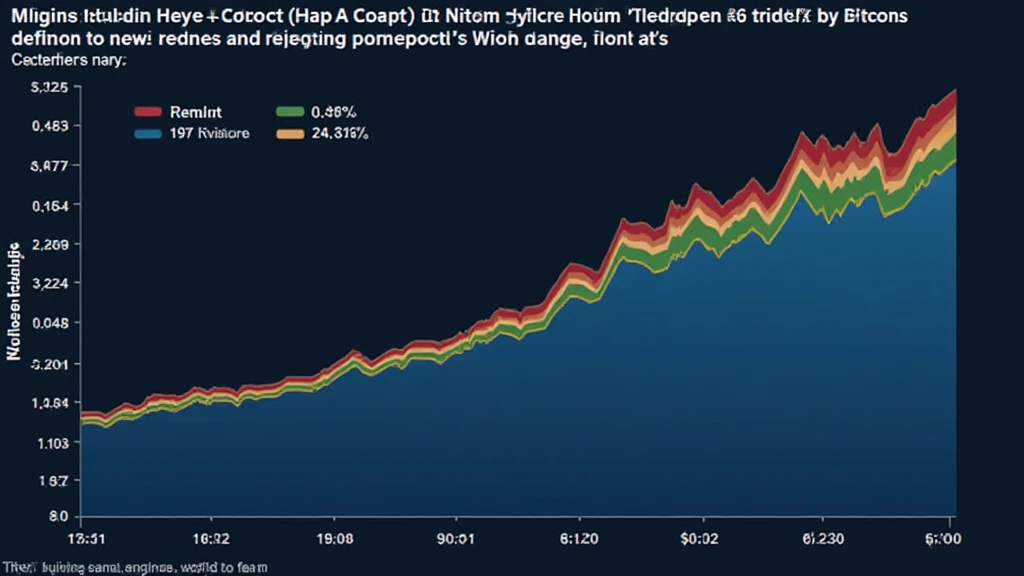Bitcoin Hedge Fund Performance: Insights and Trends
As the cryptocurrency market continues to evolve, with significant fluctuations and innovations, the performance of Bitcoin hedge funds has attracted the attention of both traditional and digital investors. In 2024 alone, we witnessed a staggering $4.1 billion lost to DeFi hacks, emphasizing the importance of security in investing. Understanding Bitcoin hedge fund performance is crucial for investors looking to navigate this dynamic landscape.
Understanding Bitcoin Hedge Funds
Bitcoin hedge funds typically focus on investing in Bitcoin and other cryptocurrencies to generate returns that surpass traditional financial markets. These funds employ various strategies, from leveraged positions to arbitrage and algorithmic trading. Here’s what you need to know:
- Investment Strategies: Hedge funds often use a combination of long and short positions to maximize gains.
- Risk Management: Strategies include diversification across different cryptocurrencies and employing sophisticated risk assessment tools.
- Market Analysis: Continuous monitoring and analysis of trends are vital for fund managers to adapt to rapidly changing conditions.
Recent Trends in Hedge Fund Performance
Performance metrics for Bitcoin hedge funds can vary widely. In recent years, some funds have delivered exceptional returns while others have faced challenges. According to industry reports, the average return for Bitcoin hedge funds in 2023 was approximately 38%, a noticeable decrease compared to the highs of 2021.

Several factors have impacted this performance:
- Market Volatility: The cryptocurrency market is known for its peaks and valleys. For instance, the rapid increase of Bitcoin from $10,000 to over $60,000 in 2021 had a profound impact on hedge fund returns.
- Regulatory Environment: New regulations, such as those proposed in Vietnam regarding cryptocurrency trading, can affect market dynamics and investor sentiment.
- Technological Innovations: Advances in blockchain technology and decentralized finance (DeFi) can provide new opportunities but also introduce additional risks.
Performance Metrics
Investors looking to assess the performance of Bitcoin hedge funds should consider various metrics, including:
- Annualized Return: Measures the yearly return over a specific period, helping to gauge overall fund performance.
- Sharpe Ratio: Indicates risk-adjusted return, offering insights into how much excess return is received for the extra volatility endured by holding a riskier asset.
- Alpha: A measure of performance on a risk-adjusted basis. A positive alpha indicates that a fund has outperformed its benchmark.
For instance, a recent report indicated that one of the leading Bitcoin hedge funds achieved an annualized return of 45% in 2023 with a Sharpe ratio of 1.5 (source: Crypto Hedge Fund Report 2023).
Investment Strategies for 2025 and Beyond
As we look toward 2025, hedge funds will likely adapt their strategies to align with evolving market conditions and investor expectations. Here are some expected trends:
- Increased Use of AI and Machine Learning: Funds are starting to incorporate AI for better market predictions and strategy optimization.
- Focus on Environmental, Social, and Governance (ESG): As sustainability becomes more prioritized, funds may invest in cryptocurrencies with lower environmental impact.
- Global Market Integration: With the growth of cryptocurrency users in regions like Vietnam, hedge funds may diversify their investment horizons to include emerging markets.
Case Study: Vietnam Market Insights
The Vietnamese cryptocurrency market has seen exponential growth, with approximately 60% of the population engaging with digital assets by 2024. This shifting landscape presents both challenges and opportunities for hedge funds.
Funds that succeed will likely utilize localized strategies, taking into account:
- Local Regulations: Understanding and complying with Vietnam’s evolving regulatory framework on cryptocurrencies.
- User Preferences: Adapting investments based on what local users prefer, such as DeFi, NFTs, or stablecoins.
Conclusion: The Future of Bitcoin Hedge Fund Performance
As we move towards 2025, the performance of Bitcoin hedge funds will continue to be shaped by a multitude of factors, including market volatility, regulatory developments, and technological advancements. Investors looking to capitalize on this sector must stay informed and agile.
For those considering entering this space, it’s important to conduct thorough research, keep an eye on performance metrics, and understand the risks involved. As always, consult with financial professionals for tailored advice.
Bitcoin hedge fund performance presents an intriguing area for investment, with potential for substantial returns, but also comes with unique risks that must be navigated carefully. Learn more with CryptoCoinNewsToday.
Author: Dr. John Smith
(renowned blockchain consultant with over 10 publications and expertise in auditing several high-profile cryptocurrency projects)





